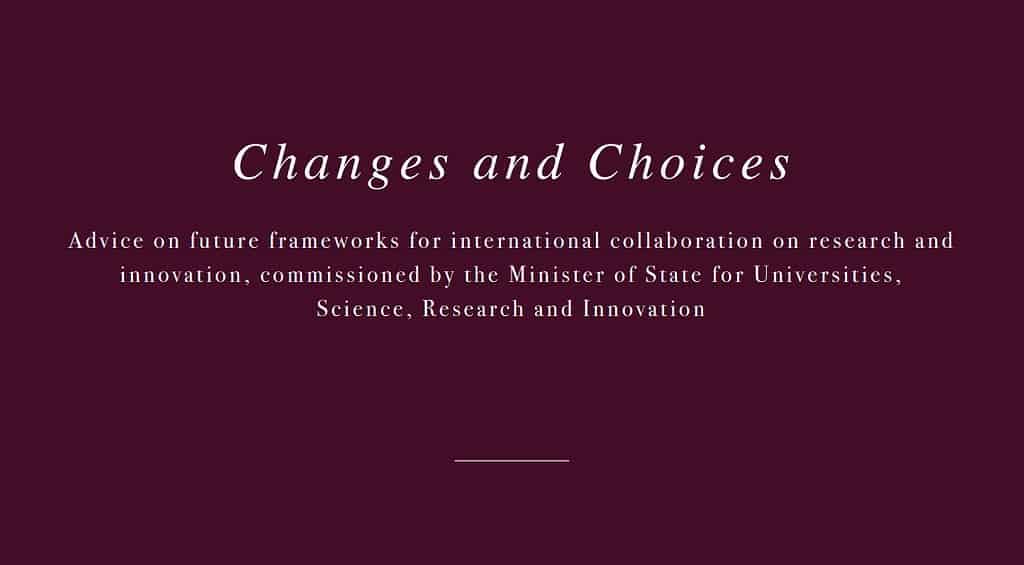Henry Lovett, Policy and Public Affairs Officer at The Physiological Society, reflects on the impacts that Brexit is already having on UK science.
UK scientists are struggling after Brexit vote
02 Oct 2017
UK science has a perception to some eyes of not being ‘open for business’, and it’s hurting us.
For those carefully tuned-in to the science and technology community, it is no surprise that Brexit is being viewed with some trepidation. This sector was one of the most united in putting across the difficulties it foresaw at the time of the 2016 referendum. Indeed, a survey at the start of this year showed that around 85% of The Physiological Society’s eligible membership voted to remain.
However, you can’t always get what you want, and the situation presented by the morning of June 24th 2016 is the one we have to work with. The aims of the sector are now to make both the process and outcome of leaving the European Union as smooth and trouble-free as possible, and to benefit from the opportunities presented by a new regulatory regime. It is heartening that the government has recognised the importance of science, technology and innovation to the United Kingdom, and the statements put out show the intention to make the UK one of the world’s brightest science hotspots.
Brexit is already having real impacts in practical terms
While this support is welcome, we have yet to see any definitive reassurances about the nature of the future working relationship with the EU, and the rights of foreign scientists in the UK. It is understandable that the government cannot prejudice negotiations by making unilateral promises, but we are reaching the point where no news is worse than bad news. Scientists, universities and companies are already feeling the effects of the Brexit vote, despite the UK remaining an EU member until March 2019. The Physiological Society has reached out to its members to hear their stories of problems faced due to Brexit uncertainty. These case studies, along with supporting information on the views of scientists and the public, have been published in a booklet that highlights the negative effects of this uncertainty with real stories and real faces.
Some of the problems that Society members have been facing include:
- Having to cancel EU funding applications as the term of the grant would go past our EU leaving date.
- Job offers being turned down by EU researchers, including one describing the UK as “not truly open for scientific business”.
- The weak pound making purchases from overseas much more expensive.
- EU researchers not seeking new jobs or contract extensions in the UK.
- Cross-border collaborations between Northern Ireland and the Republic of Ireland being cancelled over the particular uncertainty of the Irish situation.
There is widespread public support for continued immigration of scientists
The principal cause of the worries felt by EU citizens over the viability of their future life and work in the UK is the impression given by our government of a likely “hard Brexit” outcome, or even no deal being reached and the UK being unceremoniously ejected from the EU. However, figures show that a significant majority of the British population do not support these uncompromising positions.
A survey commissioned by The Physiological Society and carried out by YouGov[1] found that 61% of people support the continued immigration of EU citizens to work as scientists, while only 12% opposed this. Furthermore, 51% supported continuing to pay the EU for access to the Horizon 2020 research funding programme (and its future successors), with 11% opposing. This should be a message to the government that they can positively address the concerns of scientists and it would generate public approval! This seems a positive way to help one of the UK’s key industries and show some good faith to the EU about seeking positive, workable outcomes from Brexit.
[1] All figures, unless otherwise stated, are from YouGov Plc. Total sample size was 1,660 adults. Fieldwork was undertaken between 12th – 13th September 2017. The survey was carried out online. The figures have been weighted and are representative of all GB adults (aged 18+).
The Physiological Society is the largest network of physiologists in Europe, with over 3500 members. It promotes physiology through policy and outreach work, and supports those working in the field with world-class scientific meetings, grants for research and travel, and by publishing leading scientific journals.
Related articles

The Physiological Society’s policy team on the health challenges facing older workers and the urgent need to develop a strategy to ensure older people are happy and healthy at work.

Jo Reynolds, Director of Science and Communities at the Royal Society of Chemistry, on the RSC’s new summary report looking to unlock the potential of deep tech SMEs.

Lisa Morrison Coulthard, Research Director at the National Foundation for Education Research, on the Nuffield Foundation funded five year research programme providing insights into the essential employment skills needed for the future workforce

Sir Adrian Smith, Institute Director and Chief Executive of The Alan Turing Institute, and Graeme Reid, Professor of Science and Research Policy at UCL, set out the findings from their new independent report on international partnership opportunities for UK research and innovation